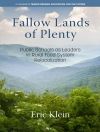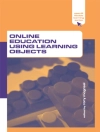The nadir of Zimbabwe�s political and economic crisis in 2008 coincided with the implementation of a baseline household food security survey in Harare by AFSUN. This survey found that households in low income urban areas in Zimbabwe�s capital were far worse off in terms of all the food insecurity and poverty indicators than households in the other 10 Southern African cities surveyed by AFSUN. The central question addressed in this report is whether food security in Zimbabwe�s urban centres has improved. AFSUN conducted a follow-up survey in 2012 that allows for direct longitudinal comparisons of continuity and change. The status of household food security in low-income neighbourhoods in Harare was improved in 2012 relative to 2008, and yet persistently high rates of severe food insecurity demonstrate that the daily need to access adequate food continued to be a major challenge. The key lesson for policymakers is that even in the context of overall economic improvement, food insecurity remains endemic among the poorest segments of the urban population. Households are already accustomed to drawing on resources outside of the formal economy and improvements in employment income have not reversed that trend. These alternative livelihood strategies should therefore be considered as a normal part of urban life and supported with state resources that can improve access to food for the most marginalized groups.
Godfrey Tawodzera & Jonathan Crush
The Return of Food [PDF ebook]
Poverty and Urban Food Security in Zimbabwe after the Crisis
The Return of Food [PDF ebook]
Poverty and Urban Food Security in Zimbabwe after the Crisis
购买此电子书可免费获赠一本!
语言 英语 ● 格式 PDF ● 网页 40 ● ISBN 9781920597184 ● 文件大小 1.2 MB ● 编辑 Godfrey Tawodzera & Jonathan Crush ● 出版者 Southern African Migration Programme ● 国家 ZA ● 发布时间 2016 ● 下载 24 个月 ● 货币 EUR ● ID 5505083 ● 复制保护 Adobe DRM
需要具备DRM功能的电子书阅读器












